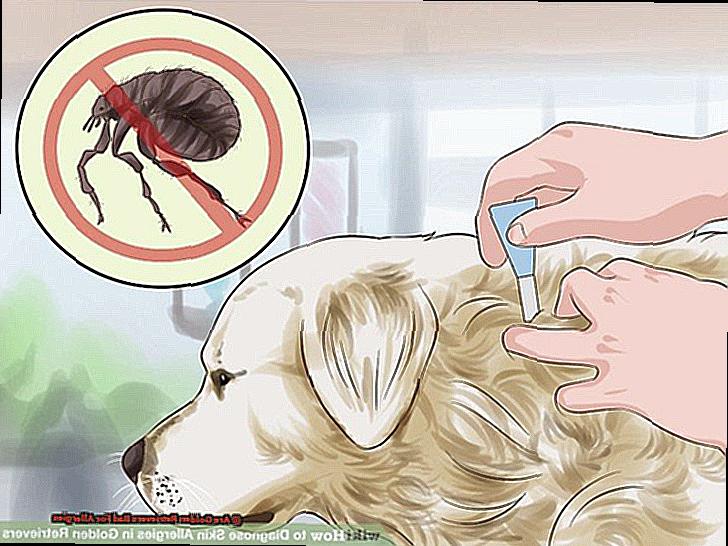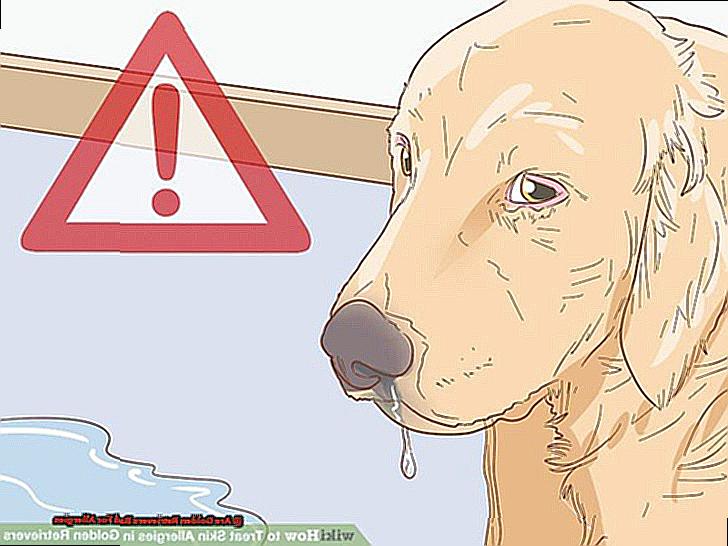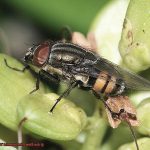Are you a dog lover who can’t resist their furry charm but suffer from allergies? Does the thought of snuggling with a golden retriever make your nose itch and eyes water? Fret not, dear reader. This blog post is for you. We’re here to answer one of the most common questions among allergy sufferers: “Are golden retrievers bad for allergies?”
Golden retrievers are renowned for their friendly demeanor and loyalty, making them a popular choice amongst pet lovers. However, if you’re prone to allergies, owning a dog can be problematic due to their dander production. But fear not, we’ll uncover whether these lovable pups are suitable for allergy sufferers or not.
The good news is that some dog breeds produce less dander than others, making them more compatible with allergy sufferers. But where do golden retrievers stand on this spectrum? Are they safe to bring home or should you steer clear?
In this blog post, we’ll delve into the science behind dander production and explore the specific characteristics of golden retrievers. We’ll also provide tips on how to manage allergies if you decide to welcome one of these furry friends into your home. So whether you’re an avid fan of golden retrievers or just curious about dogs and allergies in general, keep reading.
What are golden retrievers?
Contents
Golden retrievers are more than just a breed of dog; they’re a beloved member of many families worldwide. With their origins in Scotland in the 19th century, they were initially bred as hunting dogs for retrieving game birds. Today, they are known for their friendly and affectionate nature, making them a popular choice for families with children.
One of the most striking features of golden retrievers is their distinctive golden coat, which is thick and wavy. While this coat adds to their beauty, it also means they shed moderately throughout the year and require regular grooming to keep their coat healthy and shiny. They are also high-energy dogs, requiring regular exercise to keep them healthy and happy.
In terms of size, golden retrievers are medium to large-sized dogs that typically weigh between 55-75 pounds. They have broad heads with a friendly expression and floppy ears, adding to their overall charm and appeal.
However, for those who suffer from allergies, there is a common concern about whether golden retrievers are hypoallergenic dogs. Unfortunately, the answer is no. Golden retrievers shed a lot of fur and dander, which can trigger allergies in some people.
Despite this, there are still options for those with allergies who want to bring a golden retriever into their home. Some individuals with allergies may tolerate being around these dogs without severe symptoms. But for others, taking steps to minimize exposure to allergens is essential.
If you’re considering getting a golden retriever but have allergies, there are ways to reduce your symptoms. One option is choosing a dog with a shorter coat as these dogs tend to shed less than those with longer fur. Regular grooming can also help remove loose fur and dander from your dog’s coat before it spreads around your home.
Popularity of Golden Retrievers
Golden Retrievers are simply irresistible. Their friendly and loyal nature, combined with their distinctive golden coat, has made them one of the most popular dog breeds in the United States for decades. They consistently rank in the top 5 of the American Kennel Club’s most popular breeds. But why are these adorable dogs so popular despite their potential to trigger allergies?
One reason is their loyal and friendly personality. Golden Retrievers are famous for their trainability and make excellent family pets. They are often used as therapy dogs due to their gentle demeanor and eagerness to please. For many individuals, the joy and companionship that a Golden Retriever provides outweighs the potential risk of allergic reactions.
Another reason for their popularity is their versatility as a working dog. Originally bred to retrieve game for hunters, Golden Retrievers have since been trained for many other purposes, including search and rescue, service animals, and even as police dogs.
However, individuals with allergies may find it challenging to own a Golden Retriever because they have a thick double coat that sheds heavily throughout the year. This shedding can trigger allergic reactions in some people. But don’t worry – there are steps that can be taken to lessen these reactions.
Regular grooming is essential to reduce shedding and dander. Brushing and bathing your furry friend regularly can help keep allergy triggers at bay. Additionally, choosing a Golden Retriever with a shorter coat can also help reduce allergic reactions.
It’s crucial to note that no dog breed is entirely hypoallergenic. All dogs produce dander, saliva, and urine which can cause allergic reactions. However, some breeds produce fewer allergens than others. Despite this fact, many people with allergies still choose to own Golden Retrievers because of their lovable personality and trainability. Some even claim that they have built up a tolerance to their dog’s dander over time.
Allergens and Golden Retrievers
Golden Retrievers are one of the most beloved dog breeds for a reason – they are friendly, loving, and make great companions. However, if you have allergies, you might be hesitant to adopt one of these beautiful dogs. While no dog breed is entirely hypoallergenic, some breeds are better suited for individuals with allergies than others. So where do golden retrievers fit in?
The main culprit behind allergies is dander, which consists of tiny flakes of skin that dogs shed. And while golden retrievers are known for their luscious coats, they are considered moderate to high shedders. This can make them a challenging breed for individuals with allergies who may be sensitive to dander. But there’s more to it than just that.
Dogs can also carry allergens in their saliva and urine, and they can track outdoor allergens like pollen and mold inside on their fur. In addition, some individuals may be allergic to specific proteins found in a dog’s skin or hair. With all these factors combined, owning a golden retriever may not be the best option for those with severe allergies.
However, it’s essential to note that individual reactions to golden retrievers vary. Some people may experience mild symptoms, while others may have severe reactions. It all depends on the individual’s specific allergy triggers and the severity of their allergy.
Despite their shedding tendencies, many golden retriever owners report that they do not experience significant allergy symptoms when living with their pet. This could be due to several factors, including the individual dog’s dander production level and the owner’s grooming habits. Proper grooming and cleaning habits can significantly reduce the amount of dander in your home and minimize allergic reactions.
If you’re set on owning a golden retriever but have allergies, there are ways to manage your symptoms. You can opt for a shorter coat on your golden retriever or consider allergy shots to reduce your sensitivity over time.
Allergens Found in Pets
It’s vital to understand allergens found in pets and how to minimize their presence in your home. Pet allergens come from animal skin cells, saliva, and urine, which can stick to your pet’s fur and cause allergic reactions. Shedding is a natural occurrence in every dog breed, but for allergy sufferers, it can be a problem. Golden Retrievers are known for their luscious golden coat and loving personalities, but they are also notorious for shedding excessively.
While Golden Retrievers produce fewer allergens than other breeds, they can still cause allergic reactions in sensitive individuals. Therefore, it’s crucial to take precautions when you have any pet in your home. Regular grooming is the first line of defense against pet allergens. Brushing your dog’s coat daily will help remove loose hair and control shedding. Bathing your Golden Retriever at least once a month will also help reduce allergens in their fur.
Regular grooming not only reduces allergens but also promotes the health and comfort of your furry friend. Additionally, it strengthens the bond between you and your beloved pet. With proper care and attention, you can enjoy the companionship of a Golden Retriever without compromising on your health.
Are Golden Retrievers Hypoallergenic?
Golden Retrievers are one of the most popular dog breeds in the world, known for their friendly nature and stunning good looks. However, before adopting a Golden Retriever, it’s essential to consider whether these dogs are hypoallergenic or not.
The answer is no – Golden Retrievers are not hypoallergenic dogs. Like any other breed of dog, they produce the protein Can f 1, which is the main allergen found in dog dander, saliva, and urine. This means that people who are sensitive to dog allergens may experience symptoms around Golden Retrievers.
However, it’s worth noting that some people with milder allergies may be able to tolerate Golden Retrievers better than other breeds. This is because they shed less hair and dander than some other breeds and have a lower tendency to drool or lick their owners.

Nevertheless, allergies are highly individualized, and some people may be more sensitive to certain dog breeds or individual dogs than others. Therefore, it’s crucial to spend time with a Golden Retriever before adopting one to see how you react to their presence.
If you do decide to bring a Golden Retriever into your home, there are several strategies you can use to reduce the risk of allergies. For example, keeping the dog well-groomed and bathed regularly can minimize shedding and dander. Using air purifiers and HEPA filters in the home can help remove allergens from the air, while limiting the dog’s access to certain areas of the house, such as the bedroom, can also reduce exposure to allergens.
It’s important to remember that allergies can develop or worsen over time. Therefore, even if you have been around Golden Retrievers before without any problems, it’s possible that you could develop an allergy later on. If you do experience allergy symptoms around your Golden Retriever, there are treatments available, such as antihistamines or allergy shots.
Symptoms of Allergic Reactions to Golden Retrievers
Golden retrievers are beloved for their friendly and gentle nature, but for those with allergies, these lovable pups can be a source of discomfort and misery. An allergic reaction to golden retrievers occurs when the immune system mistakes harmless dog dander as a threat and produces an immune response that results in allergy symptoms. Let’s explore the symptoms of an allergic reaction to golden retrievers.
Itchy or Watery Eyes:
One of the most common symptoms of dog allergies is itchy or watery eyes. The eyes may become red, itchy, and watery due to exposure to dog dander. If you find yourself constantly rubbing your eyes after spending time with a golden retriever, it could be a sign of an allergic reaction.
Runny Nose:
Another common symptom of dog allergies is a runny nose. The nose may produce excess mucus in response to dog allergens, leading to a runny nose. If you find yourself constantly blowing your nose after being around golden retrievers, it could be a sign of an allergic reaction.
Sneezing:
Sneezing is another common symptom of dog allergies. It occurs when the immune system tries to get rid of the allergen by expelling it through the nose. If you find yourself sneezing frequently after being around golden retrievers, it could be a sign of an allergic reaction.
Skin Rashes:
Some people may develop a rash or hives on their skin after coming into contact with golden retrievers. This symptom can occur if the allergen comes into contact with the skin or if the individual touches something that has come into contact with the allergen. It can be uncomfortable and unsightly.
Asthma:
In severe cases, exposure to dog allergens can trigger asthma symptoms such as wheezing, coughing, and difficulty breathing. If you experience any of these symptoms after being around golden retrievers, it is crucial to seek medical attention immediately.
It’s important to note that not all people who are allergic to dogs will experience all of these symptoms. Some may only experience one or two of them, and the severity of the symptoms can vary depending on the individual’s sensitivity to dog allergens.
Minimizing the Risk of an Allergic Reaction to a Golden Retriever
With a few simple steps, you can minimize this risk and enjoy the company of your furry companion without any unpleasant symptoms.
Choose a Dog with a Shorter Coat
You can still find the perfect pup to bring joy to your life without triggering an allergic reaction. One crucial consideration is the length of a dog’s coat.
Dogs with shorter coats tend to shed less, releasing fewer allergens into the air. This is especially important for allergy sufferers who want to avoid the sneezing, wheezing, and itchy eyes that come with exposure to pet dander. If you have your heart set on a breed like the golden retriever, you may need to think twice. These beautiful dogs have long, luxurious coats that can shed quite a bit, making them less than ideal for those with allergies.
But don’t worry. Opting for a dog with a shorter coat doesn’t mean sacrificing personality or playfulness. Many breeds with short coats are known for their friendly and affectionate personalities. Some excellent options include dachshunds, boxers, beagles, and bulldogs.
Even dogs with shorter coats will shed to some extent. However, regular grooming and brushing can help remove loose fur and dander from your dog’s coat before it has a chance to spread throughout your home. You may also want to consider investing in an air purifier or HEPA filter to capture allergens in the air.
Regular Grooming for Shedding Fur and Dander
Fortunately, there’s a solution – regular grooming. These lovable dogs are notorious for shedding fur and dander, but with proper grooming techniques, you can significantly reduce the amount of allergens in your home.
One of the most critical steps in grooming your furry friend is frequent brushing. Not only does this help to remove loose fur and dirt, but it also distributes natural oils throughout their coat, keeping it healthy and shiny. Brushing also prevents painful mats and tangles from forming, which can be uncomfortable for your dog.
Another essential aspect of grooming is bathing your Golden Retriever regularly. This washes away any dirt or allergens that may be trapped in their coat, as well as reduces the amount of dander that is shed. It’s crucial to use a gentle shampoo that doesn’t dry out their sensitive skin or strip their coat of its natural oils.
Don’t forget about regular nail trimming and ear cleaning. Long nails can cause discomfort and injury to your dog, while dirty ears can lead to infections. By keeping these areas clean and trimmed, you’re ensuring your Golden Retriever stays healthy and comfortable.
Also Read: Is a golden retriever bad for allergies? – Plott World
Conclusion
To wrap things up, it’s important to note that golden retrievers are not hypoallergenic dogs, and their shedding tendencies can cause allergic reactions in some individuals. However, this doesn’t mean that allergy sufferers have to miss out on the joy of owning one of these lovable pups. With proper grooming techniques such as regular brushing and bathing, you can significantly reduce the amount of dander and allergens that they produce.
Moreover, investing in an air purifier or HEPA filter is a great way to capture any allergens present in the air. It’s also worth mentioning that everyone reacts differently to golden retrievers, and some people may be able to tolerate them without severe symptoms. Opting for a dog with a shorter coat is another option for reducing allergic reactions.
However, allergies can develop or worsen over time, so it’s crucial to spend time with a golden retriever before adopting one. This will give you an idea of how your body reacts to their presence. In conclusion, owning a golden retriever is possible for allergy sufferers with proper management and care.
These affectionate dogs bring immeasurable joy and companionship to countless families worldwide and are definitely worth considering if you’re willing to take steps to minimize exposure to allergens.









